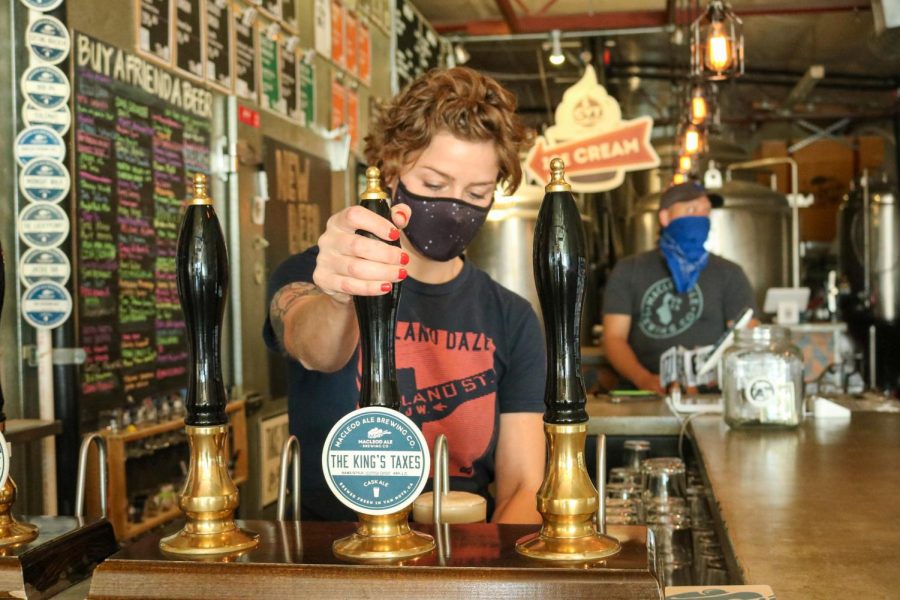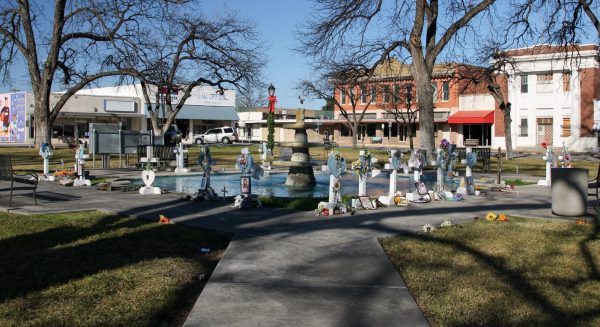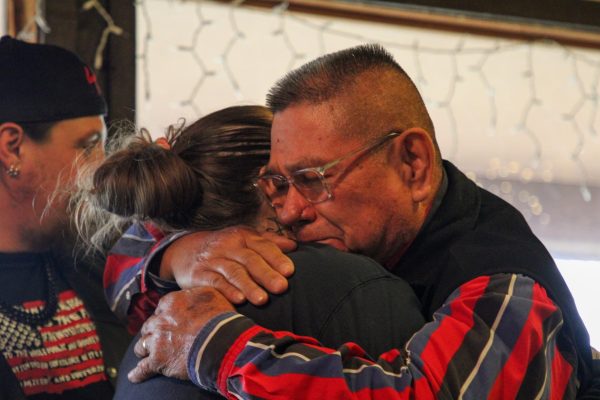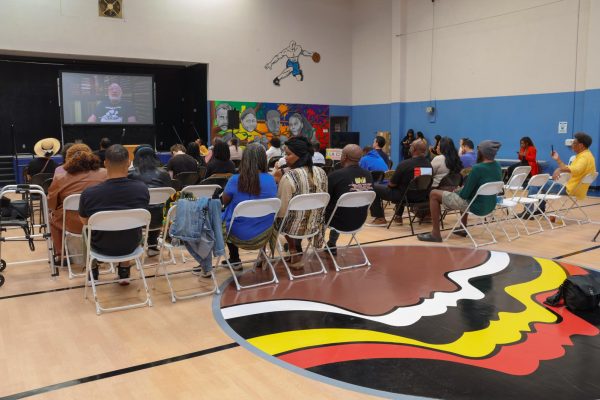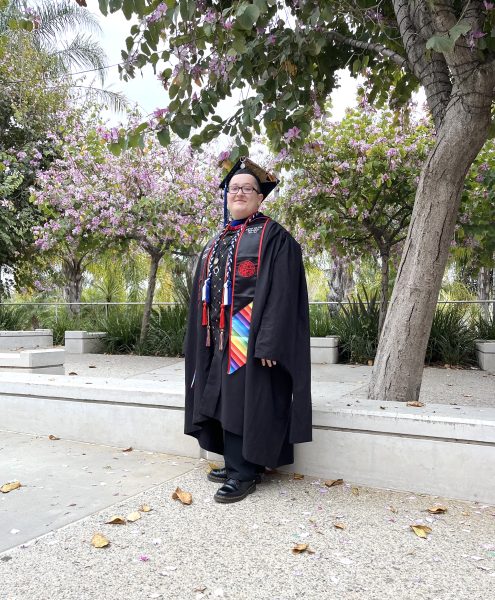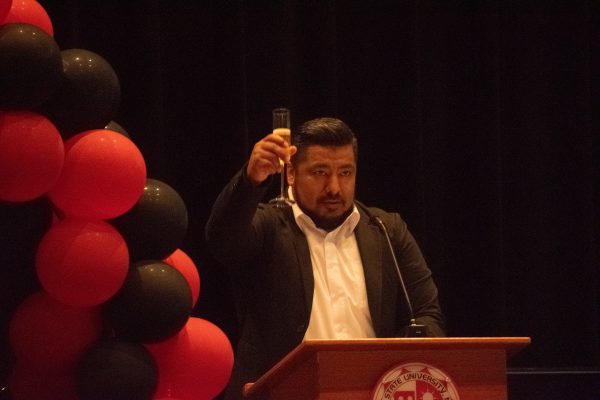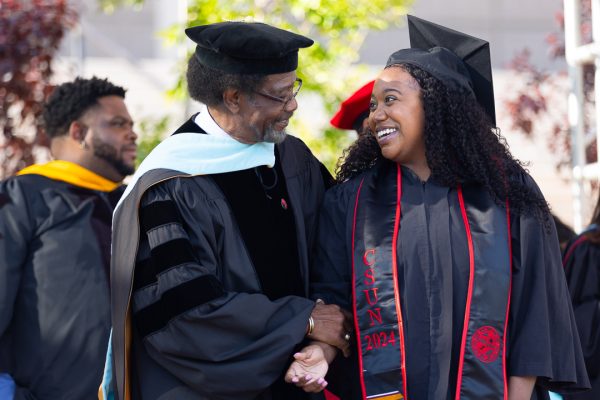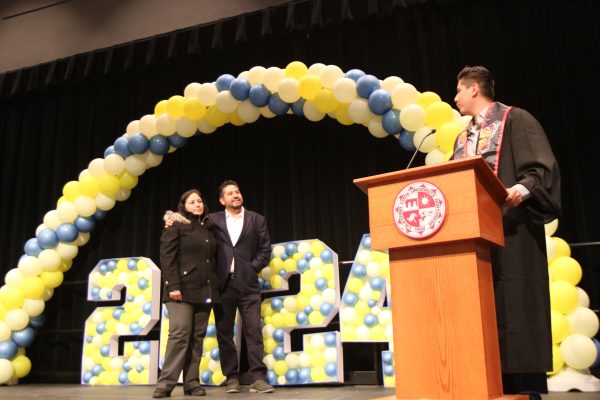Proof of vaccination ordinance goes into effect across Los Angeles County
December 23, 2021
The decision to mandate proof of vaccination status to dine inside most public indoor locations in Los Angeles County was a deliberate move to slow the spread of COVID-19 and keep hospitals from hitting maximum capacity. However, the vaccine mandate, one that is among the strictest in the country, has left some retail employees between a rock and a hard place.
The ordinance, which went into effect on Nov. 8, requires any individual entering any restaurant, bar, gym, movie theater, mall, salon or indoor city facility to prove their vaccination status or show a negative COVID-19 test taken within the preceding 72 hours. In addition, on Nov. 29, the city began issuing fines — up to $5,000 — for any business found not implementing the requirement.
While many believe this is a huge move in the right direction, many businesses and employees have voiced concern about the mandates. The restriction in some situations puts the employee on the frontlines of potential conflict when they may not be trained to handle these types of situations. Many employees are worried about increased harassment from customers that oppose the mandate, and have voiced concern about their new role as what some have decided to refer to as a “vaccination enforcement officer.”
Melanie Guerrero, a CSUN student who is currently employed at a gym, believes in the importance of getting the vaccine but thinks people should have the option to not get it and “still be able to go out in the world like everyone else.”
“My work has not enforced it’s employees to become vaccinated but I do work with people who don’t want the vaccine. The same could be said about the mask. It’s frustrating when people get angry with us — or at the situation — when there is nothing I can do about it,” Guerrero said.
She said the mandate hasn’t affected her workspace too much because she doesn’t feel uncomfortable with her company’s policies.
“All I want is for people to respect other people’s decisions and values. I believe in the vaccine and following legislation and doing what I can do to keep myself and others safe,” Guerrero said. “If someone’s opinion is different, I respect that as I hope they would respect mine.”
Some businesses in Los Angeles County are already struggling with rent backlog and the mandate comes as just another setback adding to their already long list of complications. Many businesses are fearful potential customers will go into neighboring counties to avoid having to follow the vaccination mandate, while others feel the mandate will help them maintain the safest environment possible for their employees and help slow the spread within the workplace and in the community around them.
The Los Angeles County Business Federation, a nonprofit advocacy group for businesses and employees in Los Angeles County, said in a statement that the mandate will make businesses vulnerable and put them at a competitive disadvantage because some customers may decide to travel to neighboring cities that do not have similar laws.
In addition, businesses are already dealing with labor shortages, as 2021 has seen a record number of people quit their jobs en masse. The retail and restaurant sectors have been hit the hardest, as employees are discouraged by low pay, long hours and disgruntled customers.
Emily DiMattia, an employee at California Pizza Kitchen and Starbucks, has had a difficult time dealing with being employed during the pandemic. She said the working conditions during COVID-19 have been an uphill battle for her.
“It has been pretty hard to be honest. Dealing with people who bring their political views to restaurants isn’t right. I have been assaulted and told off,” DiMattia said. “I am honestly done with people.”
She agrees with the mandate and is vaccinated herself. DiMattia believes that the mandate gives the workplace a sense of safety and thinks this is a step in the right direction. She goes on to explain, “Sadly [employers] don’t enforce [the mandate] and I think they should. If a customer has to be vaccinated to sit in a restaurant, an employee should have to be vaccinated to work.”
However, her main concern is just the safety of everyone — both the employee and customer.
“I think we honestly should be paid more for this,” DiMattia said. “Enforcing the mandate to people has been extremely hard and for me it has led to assault because a customer was so angry.”
While some employees and businesses are expressing their concerns for the future of this mandate, it is unclear how many businesses will actually follow the mandate, and how the city will locate and fine these businesses.
